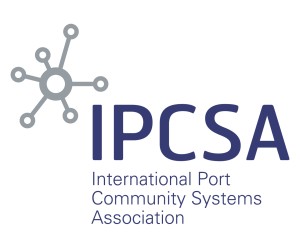Port and shipping industry partners in urgent call to action to accelerate pace of digitalisation to cope with a post COVID-19 “new normal”

To date, only 49 of the 174 Member States of the International Maritime Organization possess functioning Port Community Systems – co-signees call for wide-ranging adoption of secure electronic data exchange
“The COVID-19 crisis has painfully demonstrated the heterogeneous landscape that currently exists across ports worldwide. While some port communities seized the opportunities of the fourth industrial revolution and developed into full-fledged ‘smart’ ports, many others have barely grasped the essentials of digitalisation and continue to struggle with larger reliance on personal interaction and paper-based transactions as the norms for shipboard, ship-port interface and port-hinterland based exchanges”: Accelerating Digitalisation of Maritime Trade and Logistics: A Call to Action
This is the main finding that triggered the recent call to action communiquéinitiated by the International Association of Ports and Harbors (IAPH), co-signed by BIMCO, the Federation of National Associations of Ship Brokers and Agents (FONASBA), the International Cargo Handling Coordination Association (ICHCA), the International Chamber of Shipping (ICS), the International Harbor Masters Association (IHMA), the International Maritime Pilots Association (IMPA), the International Port Community Systems Association (IPCSA), the International Ship Suppliers and Services Association (ISSA) and the PROTECT Group.
IPCSA Chairman Hans Rook, who was also one of the initiators of the development of a Port Community System for Rotterdam in the early 2000s, said:
“It is great to see the whole industry supporting the same message that the International Port Community Systems Association has been promoting since its inception in 2011. The COVID-19 pandemic has proved the value of Port Community Systems and Single Windows and this Call to Action is a milestone in having the whole industry supporting Member States and port authorities to work together, collaborate and develop these critical systems.”
In the call to action, the co-signees include the following priorities:
- Find ways of using existing International Maritime Organization’s Facilitation (FAL) Convention requirements to support electronic transmission, receipt and response of information for all port community-related transactions, making the transition to fully fledged Single Window systems.
- Harmonise data standards beyond FAL to create additional e-business solutions, share data to optimise port calls as well to effectively deploy resources by logistics providers to handle and clear cargo handling. This will cut energy use, reduce costs and emissions, and improve safety.
- Strive to introduce Port Community Systems and secure data exchange platforms in IMO Member State ports.
- Review existing IMO guidance on Maritime Cyber Risk Management on its ability to address cyber risks in ports, developing additional guidance where needed.
- Raise awareness, avoid misconceptions, standardise and promote best practices as to how port communities can apply emerging technologies.
- Increase health security in port environments for all stakeholders on board and on shore by applying innovation and technological solutions.
- Develop a practical roadmap that facilitates a digital port environment where port community service providers and users can securely share data.
- Establish a coalition of willing stakeholders to improve transparency of the supply chain, starting with long overdue introduction of the electronic bill of lading.
- Support smaller, less developed, and under-staffed port communities with technical facilities and personnel training.
The policy document, which has also been developed with members of the Roundtable of international port organisations and experts from the WPSP COVID-19 Taskforce, will now be submitted to the IMO Secretariat in London as a proposal for further dissemination.
Jérôme Besancenot, CIO HAROPA Port of Le Havre and Chairman of the PROTECT Group, added: “The PROTECT Group has been developing EDI Standards for port authorities since the early 1990s and this Call to Action by the wider industry is important to ensure that ports are ready and willing to digitalise their processes and take advantage of the groundwork that has already been done by organisations such as PROTECT and IPCSA.”
The Call to Action concludes: “Working on these priorities requires collaboration between maritime supply chain industry stakeholders and government. Above all, it calls for inter-governmental collaboration as the acceleration of digitalisation will require change management at local, regional, and national levels. National Trade Facilitation committees implemented under the WTO Trade Facilitation Agreement could be an excellent instrument for member states and port authorities to drive the change.








